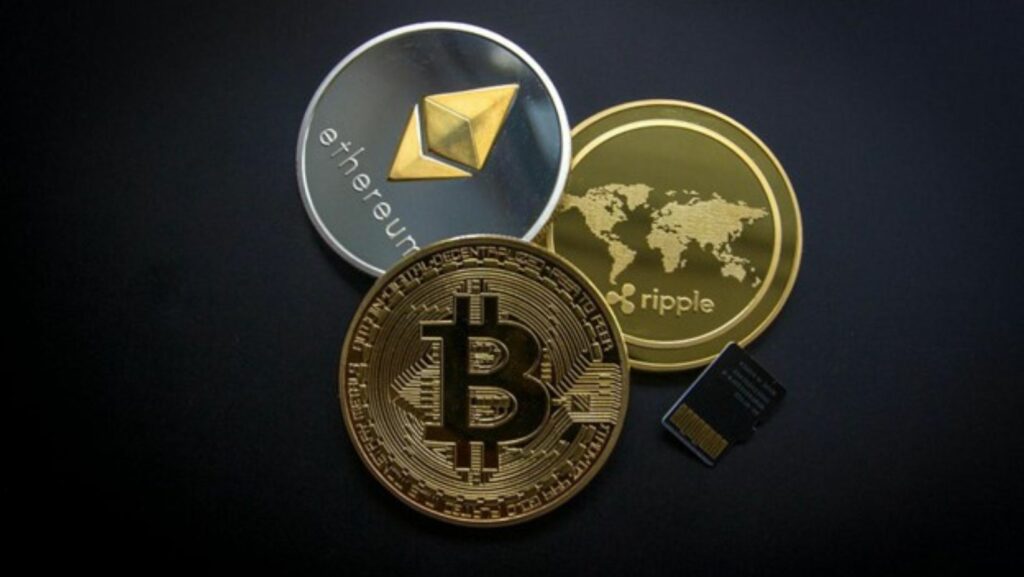In recent years, Bitcoin has transitioned from a niche digital experiment to a mainstream financial instrument. Born from the ingenuity of a pseudonymous individual or group known as Satoshi Nakamoto, Bitcoin has captured the imagination and investment of millions around the globe.
What Is Bitcoin?
This digital currency, underpinned by blockchain technology, is not just a novel way to transfer value but represents a fundamental shift in how we conceive of money, security, and trust in the digital age.
Bitcoin’s most distinguishing feature is its decentralized nature. Unlike traditional currencies issued by central banks, Bitcoin operates on a peer-to-peer network. This decentralization ensures that no single entity controls the Bitcoin network, fostering a level of transparency and security that is unprecedented in financial systems.
Transactions are verified by network nodes through cryptography and recorded on a public ledger called a blockchain. This process eliminates the need for intermediaries, reducing transaction costs and increasing the speed of transfers. You can click the link: https://www.nist.gov/blockchain to learn more about blockchain technology.
For individuals and businesses engaged in international trade, this feature is particularly advantageous, as it mitigates the delays and expenses associated with conventional banking systems.
Why Choose Bitcoin?
The appeal of Bitcoin extends beyond its decentralization. One of the most compelling aspects of this digital currency is its potential as a hedge against inflation. Traditional fiat currencies are subject to the policies of central banks, which can print money at will, leading to devaluation.
Bitcoin, however, has a fixed supply cap of 21 million coins, which cannot be altered. This scarcity is designed to mimic the finite nature of precious resources like gold, making Bitcoin an attractive store of value. Investors seeking to protect their wealth from the erosive effects of inflation have increasingly turned to Bitcoin, considering it a digital alternative to gold.
Moreover, Bitcoin offers a revolutionary level of financial inclusion. In many parts of the world, access to banking services is limited or non-existent. Bitcoin allows anyone with an internet connection to participate in the global economy.

By providing a secure and accessible means of storing and transferring value, Bitcoin empowers individuals in developing regions to engage in commerce, save for the future, and build wealth. You can buy Bitcoin online to diversify your investment portfolio. This democratization of finance has the potential to uplift millions out of poverty and drive economic growth in underserved communities.
The innovation does not stop at Bitcoin itself; the underlying blockchain technology has far-reaching implications. Blockchain provides a secure, transparent, and immutable record of transactions, making it an ideal solution for a wide range of applications beyond cryptocurrency. Industries such as supply chain management, healthcare, and real estate are exploring blockchain to enhance transparency, reduce fraud, and improve efficiency.
For instance, in supply chain management, blockchain can track the provenance of goods, ensuring authenticity and reducing counterfeit products. In healthcare, patient records can be securely shared among providers, enhancing care coordination and patient outcomes.
Regulation
Despite these advantages, Bitcoin is not without its challenges. Critics often point to its volatility, regulatory uncertainty, and environmental impact as significant concerns. Indeed, the price of Bitcoin can be highly volatile, which poses risks for investors and challenges for its adoption as a stable medium of exchange.
Regulatory frameworks around Bitcoin vary widely, with some countries embracing it and others imposing strict restrictions. Additionally, the energy-intensive process of mining Bitcoin has raised environmental concerns. You can click here to learn more about mining Bitcoin. However, the industry is actively seeking solutions, such as transitioning to renewable energy sources and developing more efficient mining technologies.

The growing acceptance of Bitcoin by major financial institutions and corporations underscores its legitimacy and potential.
This institutional adoption not only validates Bitcoin as a credible asset but also paves the way for broader acceptance and usage. As more companies and consumers become comfortable with Bitcoin, it is likely to become a standard component of the global financial system.
Furthermore, the development of regulatory frameworks is a positive step towards the maturation of the Bitcoin ecosystem. Clear and consistent regulations can provide the necessary safeguards for investors and consumers, reducing risks and fostering trust.
Governments and regulatory bodies are beginning to recognize the importance of Bitcoin and blockchain technology, and their efforts to create supportive environments will be crucial for future growth.
In conclusion, Bitcoin represents a transformative force in the financial world. Its decentralized nature, potential as a hedge against inflation, and ability to foster financial inclusion are compelling reasons for its growing popularity. While challenges remain, the ongoing innovation and increasing institutional adoption suggest a bright future for Bitcoin.
As we move forward, Bitcoin has the potential to reshape not only our financial systems but also the very way we interact with and perceive value in the digital age. Embracing this change and understanding its implications will be key to harnessing the full potential of Bitcoin and blockchain technology.

